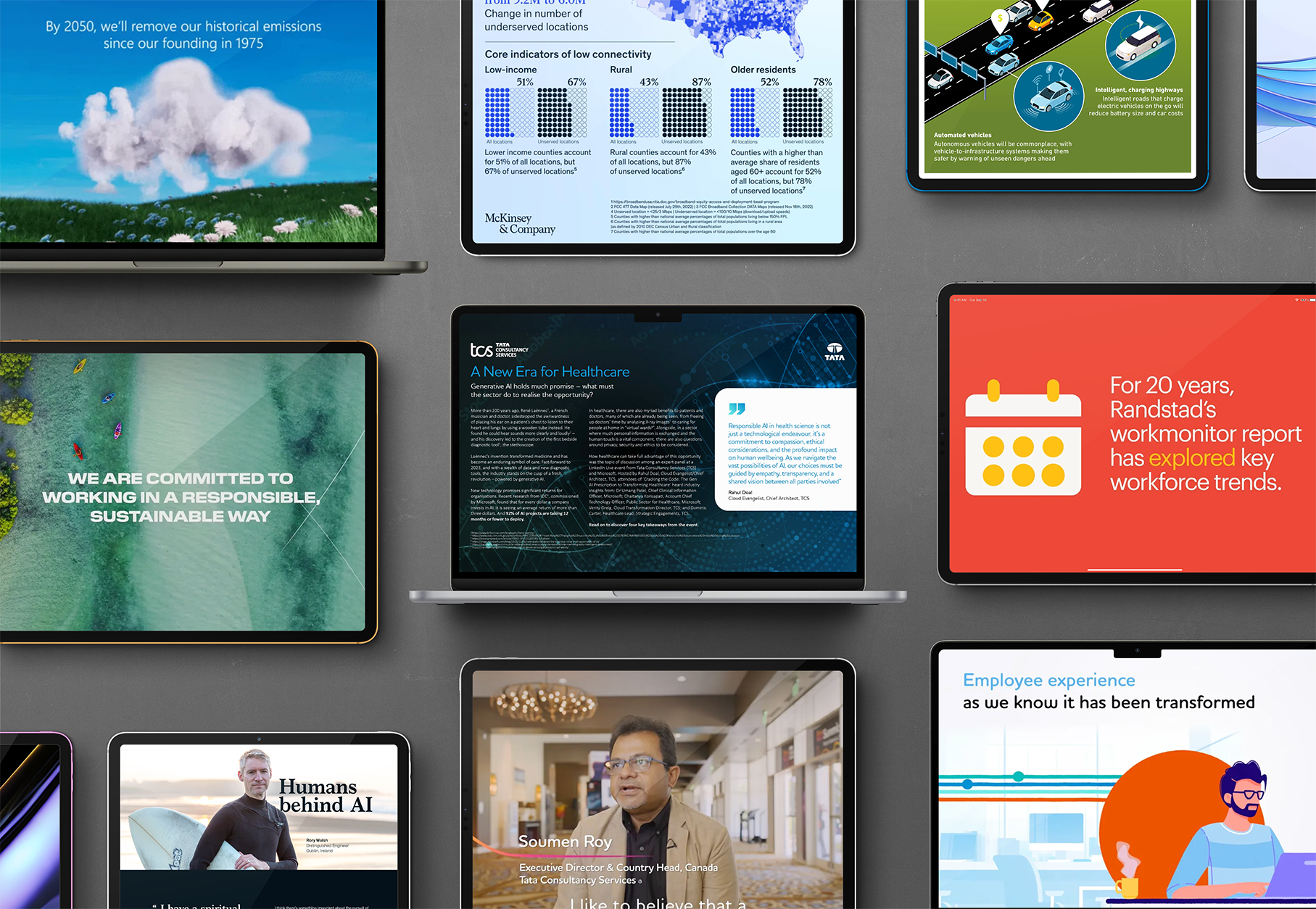ESG has become a politically-charged term with “culture war” undercurrents.
But even as caution has risen around using the ‘ESG’ label to describe environmental, social and governance issues, the factors underpinning it remain highly relevant to most companies.
While the focus has been on social and governance issues over the past few years, changes to reporting regulations have pushed environmental concerns firmly back into the spotlight. In short: the E-years look set to dominate our future.
What does this mean for how companies operate and how they communicate their brand stories?
It certainly means more accountability, which in turn puts pressure on companies to embrace meaningful action on environmental issues. And those that play their cards right could be rewarded with an enhanced reputation cemented in transparency and trust.
Making sure you measure up
With the climate crisis intensifying, the lead-up to the COP28 climate talks in the United Arab Emirates provides an opportunity for companies to reflect on the environmental impact of their business operations and the actions taken to mitigate them. Both of these areas are becoming increasingly visible due to new reporting regulations.
The EU’s Corporate Sustainability Reporting Directive (CSRD) strengthens the rules governing the social and environmental information that companies are required to report, for example.
Large European companies and non-EU businesses with substantial operations in the EU are required to provide third-party audited reports outlining the sustainability issues affecting their business – and how business operations impact people and the environment.
More recently, the first draft of the European Sustainability Reporting Standards (ESRS) regulations was issued in June 2023, ready for a consultation period. While this controversial document dilutes some of the provisions contained within recommended standards of reporting put together by the European Financial Reporting Advisory Group (EFRAG) the previous year, it increases the ESG reporting burden for most companies.
The ESRS legislation aims for interoperability with different reporting standards, including the International Sustainability Standards Board, the Task Force on Climate-related Financial Disclosure and the Global Reporting Initiative.
Jumping through all of these additional hoops will put pressure on companies that see environmental stewardship as a tick-box exercise. But for those committed to positive change, there is an opportunity to demonstrate their commitment.
Tackling global headwinds
Outside of Europe, the US Securities and Exchange Commission (SEC) has also unveiled plans to tighten rules on climate-related disclosures for investors.
New rules could help enhance and standardise climate-related reporting for investors, requiring listed companies to disclose risks that are ‘reasonably likely’ to impact their business, results of operations or financial condition. Moreover, they must disclose direct Scope 1 emissions, as well as emissions from purchased energy (Scope 2) and some types of indirect value chain emissions (Scope 3).
This ramping up of reporting legislation indicates the direction of travel for sustainable business operations in future, which could be characterised by greater accountability, transparency and responsible environmental stewardship.
Putting ‘E-action’ on your A-list
The old cliché that actions speak louder than words, seems fitting here. Companies that embrace change and switch to more sustainable ways of doing business, will be best-placed to build trust and engagement.
Speaking at the EACD Summit 2023, Josep Catlla, Head of Corporate Affairs at global healthcare and pharmaceutical company Sanofi, notes that some companies see reporting on ESG as a tick-box exercise. However, there is an opportunity to review your company’s commitment to society and rethink your company’s strategy.
Embracing transparency and trust are important drivers of business success. The Edelman Trust Barometer 2023 shows that business is the only institution that is viewed as both competent and ethical, and has increased its ethics score for the third year in succession, up 19 points since 2020.
“Trust goes beyond just transparency – it’s about showing what, as a business, you want to create as a legacy. What is it that you want to contribute to this planet? ESG is an enabler for that. It’s no longer a nice-to-do,” Truus Huisman, Chief Communications Officer at Ikea Foundation, told the EACD Summit 2023 audience.
Forward-thinking companies are increasingly recognising that there is no substitute for action, authenticity and transparency regarding their efforts to operate more sustainably. Your business – and the planet – depends on it.
Committing to a positive course of action also unlocks the right to build a new narrative around what you are doing and why, both to set a good example to others and to enhance your brand’s reputation. Your story and how you tell it are important.
If you would like to know more about how Formative Content can help with your sustainability messaging and support around events like COP28, please email alex.gray@formativecontent.com
READ MORE
We’re buzzing to be a B Corp
Building on sustainability: Formative joins the UN Global Compact
About the author: Johnny Wood has been a journalist for over 15 years working in different parts of the world – Asia, Europe and Middle East. He specialises in the energy transition, sustainability and innovation. Connect with Johnny on LinkedIn here.

